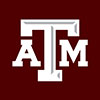Program Information
First Year
The first year of the PATHS Certificate Program will provide both core competency and enrichment classes, preparing students to work in their chosen fields of study in a wide range of community settings. Students must successfully complete the classroom component of the program in order to be placed in a practicum for the second year. Course content and competency testing will be modified based on individual learning styles and needs.
Enrichment courses offer students skill sets that exceed the minimum requirements community service providers may be able to offer. These additional skills can grant graduates broader opportunities in their chosen field.
Core Coursework
- What is the Role of a Direct Support Professional?
- CPR and First Aid
- Identifying, Reporting, and Avoiding Abuse/Neglect/Exploitation
- Confidentiality
- History of Disability
- Self-determination/Disability Rights
- Medication Management
- Lifting/Transferring
- Basic Computer Skills
Enrichment Courses
- Self-determination
- Person-Centered Thinking
- Person-Centered Plan Facilitation
- Community Inclusion
- Assistive Technology
- Supportive and Respectful Communication
- Supporting Friendships and Relationships
- Positive Behavior Supports
- Community Settings
Students will attend the first semester classroom component of the program. Not all activity will occur in a classroom setting and students will engage in a variety of small group learning experiences. PATHS students will be encouraged to actively participate in a service organization on the Texas A&M campus to facilitate a broader social network.
Second Year
Students who successfully complete the first year classroom component of the program will meet the minimum requirements to be employed in a community setting for 135 practicum hours. The practicum will offer students hands-on training serving people with disabilities and assisting older people.
PATHS staff will provide supervision and support in partnership with the community provider to ensure the student gains critical direct skill development. At the end of the practicum, the student will receive an evaluation from PATHS staff and the community provider to determine successful completion. Job placement support will be available to students in their final semester of the two-year program.
Position Breakdown
Direct Support Professional- General
- Direct Support Professional – General (DSP-G) is a title for a person who works in a community setting to support people with disabilities and assist older people in their communities. The term represents a broad range of employment options that may also be titled:
- Personal Care Attendants,
- Direct Care Staff,
- Respite Workers, or
- Community Support Specialists.
Individuals in these positions work to support people with disabilities and older people to ensure their ability to live independently in their homes, with their families, or in other community settings. A DSP-G may be employed by:
- A provider of community services,
- A home health agency,
- The family of the individual receiving services, or
- Directly through an individual with a disability.
DSP-Gs play key roles in the lives of the people they serve and their families and are instrumental in supporting a person to live a valued life in their community.
As part of their job, DSP-Gs may:
- Assist a person with mobility needs to complete every day tasks.
- Help a person become active in community settings of their choice (e.g. workplace, recreational activities, social functions).
- Assist with developing independent living skills (e.g. shopping, acquiring transportation, preparing meals).
- Support more than one person with disabilities in a community home.
Direct Support Professional- Paraprofessional
-
A student in the Direct Support Professional (DSP-P) career track is trained to support teachers and students in the classroom. A DSP-P can be employed by school districts or other educational facilities. As part of their job, DSP-Ps may:
- Assist with instruction.
- Run errands.
- Escort students to out-classes.
- Help prepare materials.
- Assist with lesson planning.
- Help collect data.
Child Care Professional
The Child Care Professional (CCP) track is available to students who have been accepted into PATHS who have an interest in working with children aged 0-5 in a child care program. This track will closely align with six competency standards set by the CDA Council. Upon graduation, graduates will have knowledge to begin/continue working with children aged 0-5 in the classroom setting. As part of their job, CCPs may:
-
- Supervise and monitor the safety of children in their care.
- Organize toys and materials to ensure a tidy activity area.
- Help children keep good hygiene.
- Change diapers for infants and toddlers.
- Teach children to use touch screens and computers.
- Develop schedules and routines to ensure that children have enough physical activity, rest, and playtime.
- Keep records of children’s progress, routines, and interests.
